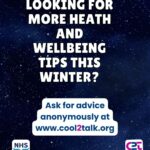Confidentiality around sexual health 🔐
We know that confidentiality is really important to you when you’re looking for sexual health and relationships information and going to a service.
If I go to a drop-in or sexual health service, will I get asked personal questions?
Yes, they may ask you questions about your health and relationships so that they can give you the help or information you need during your visit. They may also ask you some questions to make sure you understand the advice they are giving. You only have to tell them things you feel comfortable sharing.
Will things I say, or ask for, be kept private?
You only have to tell them things you feel comfortable sharing. Whatever age you are, you have the right to confidentiality about your sexual health and relationships if you discuss them with a professional. This means that youth agencies, doctors, nurses and other people who offer confidential services should keep your personal information private. This means that most young people who are under 16 can get condoms and other contraception without other people knowing.
The only exception to this rule is when:
The professional person is concerned that you or someone else is in danger of being harmed, especially if you are under the age of 16
Under 16s are entitled to special protection from harm, and professionals must remember this when helping young people – they refer to this as ‘child protection’. If they feel you might need extra support or protection to keep you safe, a professional person will always try to tell you first that they need to share what you’ve told them with someone else.
If you are under 13 you can still access sexual health services but information may be discussed with you and with another professional to make sure you are safe.
All services for young people should have a copy of their confidentiality policy available in a language you understand. If you can’t see it, or you’re not sure what their policy is around sharing information, you have the right to ask.

